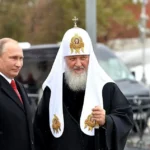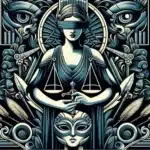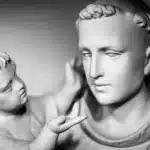The growing influence of white Christian nationalism, its impact on political decisions, and its role in shaping the political landscape of the United States have garnered significant academic interest in recent decades. In The Flag and the Cross: White Christian Nationalism and the Threat to American Democracy, Gorski and Perry (Oxford University Press, 2022) explore these themes.
The study aims to analyze the threat that this ideology poses to American democracy. By tracing its roots back to the country’s foundation, Gorski and Perry examine its complex political implications, while not only defining white Christian nationalism but also exploring its origins, mechanisms, and future trajectory.
Analyzing White Christian Nationalism
Drawing from their own sociological research conducted between 2019 and 2021, Gorski and Perry identify seven indicators that measure membership in white Christian nationalism. These indicators include beliefs that documents such as the Declaration of Independence and the Constitution of the United States are divinely inspired, that America’s success is part of God’s plan, and that the federal government should defend Christian values and allow prayer in public schools and religious symbols in public spaces.
White Christian violence becomes a central theme connecting order and freedom.
They reflect the desire to restore and privilege the myths, values, identity, and authority of a particular ethnocultural tribe while relegating other tribes to their perceived rightful place.
The study sheds light on the intricate relationship between religion, race, and politics in the United States, providing relevant insights into the historical and ideological roots of white Christian nationalism. It exposes how the subjugation of Native Americans and the enslavement of Africans were justified through the joint participation of white Christians and clergy in acts of racial violence, oppression, and even lynchings.
Moreover, the authors delve into the influence of theology in arguments both for and against black slavery, illustrating how pro-slavery theologians used the curse of Ham to justify slavery, while Christian abolitionists advocated for equal rights for all human beings. This analysis highlights the importance of critically examining religious beliefs and their impact on social and political attitudes.
Implications for American Democracy
The book also addresses the intricate relationship between the libertarian ideas of the Tea Party movement and the ethnotraditionalist impulses of white Christian nationalism. The authors argue that this racialized combination of libertarian freedom for whites and authoritarian control over non-whites explains the inconsistencies in white conservative attitudes towards violence. White Christian violence becomes a central theme connecting order and freedom, while minority violence is perceived as the most significant threat to the latter.
Discussing the rise of illiberalism, Gorski and Perry present the Capitol insurrection on January 6, 2021, as the eruption of long-simmering underground forces that continue to persist. The increasing pressure observed in the American political landscape stems from gradual demographic changes, notably the perception of a society becoming less white and less Christian, while simultaneously becoming more diverse, secular, and cosmopolitan.
This development directly clashes with the concept of white nationalism, which perceives the United States as a white Christian nation favored by God and governed by white Christian men ready to defend freedom and order with violence. Although the defeat of the insurrection temporarily halted the actions of illiberal forces, the possibility of a second, even more violent eruption remains, posing a threat to American democracy for at least a generation.
The book as a whole represents a significant contribution that sheds light on the growing threat posed by white Christian nationalism to democracy in the United States. The authors provide a pertinent analysis of the history, politics, and culture of white Christian nationalism, offering valuable perspectives on how to confront this growing threat and emphasizing the need for a broad alliance among individuals from different political and religious backgrounds to defend American democracy.
Areas for Further Research and Analysis
Despite these valuable contributions, certain aspects of the book would benefit from further exploration. Particularly, Gorski and Perry’s analysis of the relationship between white Christian nationalism and political nativism lacks a comprehensive explanation of their intertwined nature and fails to provide an operational definition of nativism.
Furthermore, a comprehensive examination of the role of racist nativism within the ideology of white Christian nationalism would have deepened our understanding of this intricate phenomenon. Precisely because throughout history, white Christian nationalism has functioned as a legitimizing force for perpetuating racist ideologies, it has led to the systematic exclusion and marginalization of Native Indigenous peoples and African Americans.
These communities have frequently been perceived as threats to the dominant white Christian nationalist ideology due to their unique cultural, religious, and racial backgrounds, resulting in their treatment as outsiders in their own land. These very elements constitute the core components that define racial nativism.
A more extensive analysis of the complex interplay between political nativism, racism, and white Christian nationalism would have further enriched the book’s insights. Despite the need for additional exploration in certain areas, this book remains an invaluable resource for scholars and researchers eager to comprehend the multifaceted challenges posed by white Christian nationalism to the foundation of American democracy.









